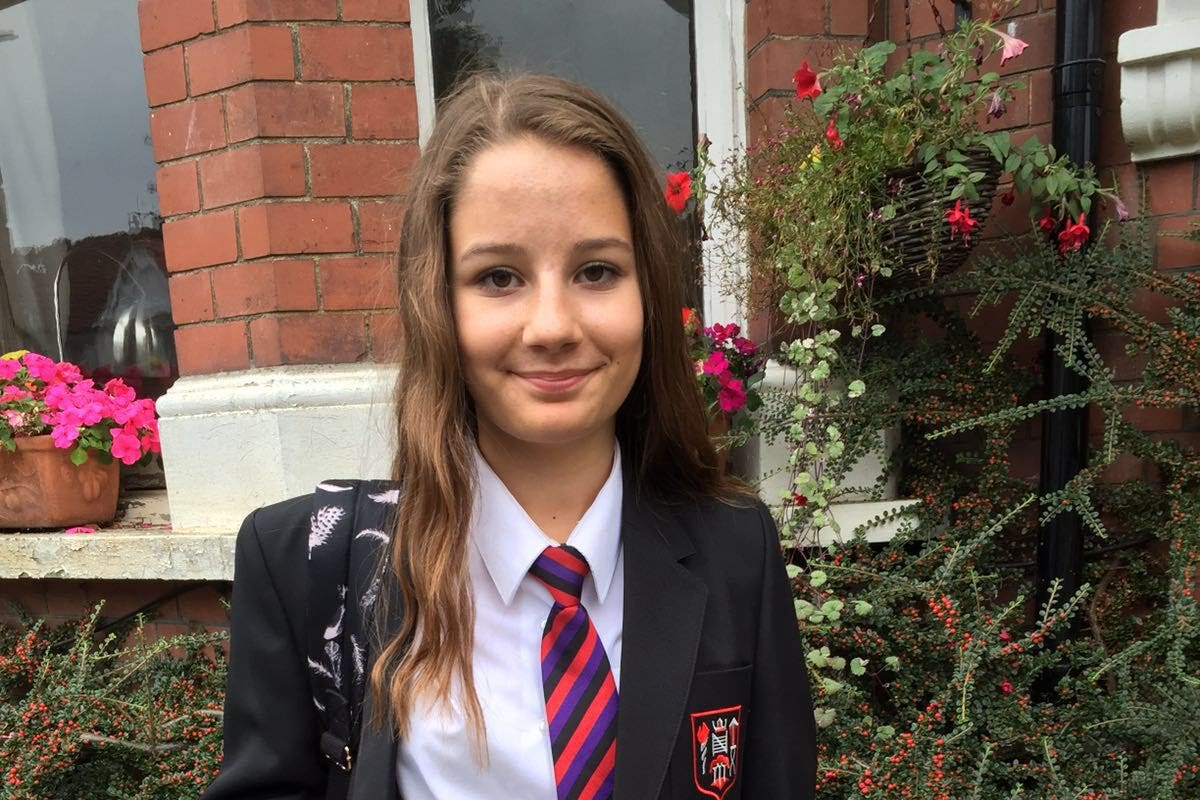Online posts viewed by Molly Russell were not safe for a child to see – coroner
Andrew Walker concluded the 14-year-old died ‘from an act of self-harm while suffering depression and the negative effects of online content’.

Your support helps us to tell the story
From reproductive rights to climate change to Big Tech, The Independent is on the ground when the story is developing. Whether it's investigating the financials of Elon Musk's pro-Trump PAC or producing our latest documentary, 'The A Word', which shines a light on the American women fighting for reproductive rights, we know how important it is to parse out the facts from the messaging.
At such a critical moment in US history, we need reporters on the ground. Your donation allows us to keep sending journalists to speak to both sides of the story.
The Independent is trusted by Americans across the entire political spectrum. And unlike many other quality news outlets, we choose not to lock Americans out of our reporting and analysis with paywalls. We believe quality journalism should be available to everyone, paid for by those who can afford it.
Your support makes all the difference.A senior coroner has concluded schoolgirl Molly Russell died after suffering from “negative effects of online content”.
Coroner Andrew Walker said online material viewed by the 14-year-old on sites such as Instagram and Pinterest “was not safe” and “shouldn’t have been available for a child to see”.
Concluding it would not be “safe” to rule Molly’s cause of death was suicide, Mr Walker said the teenager “died from an act of self-harm while suffering depression and the negative effects of online content”.
At North London Coroner’s Court on Friday, he said: “At the time that these sites were viewed by Molly, some of these sites were not safe as they allowed access to adult content that should not have been available for a 14-year-old child to see.
“The way that the platforms operated meant that Molly had access to images, video clips and text concerning or concerned with self-harm, suicide or that were otherwise negative or depressing in nature.
“The platform operated in such a way using algorithms as to result, in some circumstances, of binge periods of images, video clips and text – some of which were selected and provided without Molly requesting them.
“These binge periods, if involving this content, are likely to have had a negative effect on Molly.”
The inquest heard Molly accessed material from the “ghetto of the online world” before her death in November 2017, with her family arguing sites such as Pinterest and Instagram recommended accounts or posts that “promoted” suicide and self-harm.
Meta executive Elizabeth Lagone said she believed posts which the Russell family argued “encouraged” suicide were safe when the teenager viewed them.
It is likely that the material viewed by Molly... affected her mental health in a negative way and contributed to her death in a more than minimal way
Pinterest’s Judson Hoffman told the inquest the site was “not safe” when Molly used it.
The inquest was told that out of 16,300 posts Molly saved, shared or liked on Instagram in the six-month period before her death, 2,100 were depression, self-harm or suicide-related.
The court was played 17 clips the teenager viewed on the site – prompting “the greatest of warning” from the coroner.
The inquest also heard details of emails sent to Molly by Pinterest, with headings such as “10 depression pins you might like” and “new ideas for you in depression”.
Continuing his conclusions, Mr Walker said: “Other content sought to isolate and discourage discussion with those who may have been able to help.
“Molly turned to celebrities for help not realising there was little prospect of a reply.
“In some cases, the content was particularly graphic, tending to portray self-harm and suicide as an inevitable consequence of a condition that could not be recovered from.
“The sites normalised her condition, focusing on a limited and irrational view without any counterbalance of normality.
“It is likely that the above material viewed by Molly, already suffering with a depressive illness and vulnerable due to her age, affected her mental health in a negative way and contributed to her death in a more than minimal way.
“Molly Rose Russell died from an act of self-harm whist suffering from depression and the negative effects of online content.”
The coroner said on Thursday he intended to issue a Prevention of Future Deaths (PFD) notice which will recommend actions on how to prevent a repeat of the Molly Russell case.
The Russell family’s lawyer, Oliver Sanders KC, asked the coroner to send the PFD to Instagram, Pinterest, media regulator Ofcom and the Department for Digital, Culture, Media and Sport.
A spokeswoman for Meta said in a statement following the conclusion that the company is “committed to ensuring that Instagram is a positive experience for everyone, particularly teenagers” and would “carefully consider the coroner’s full report when he provides it”.